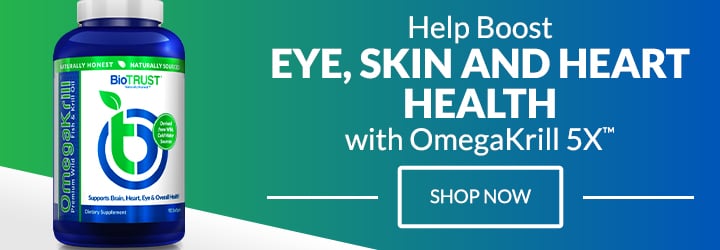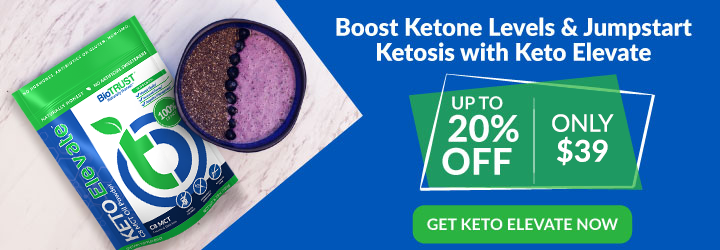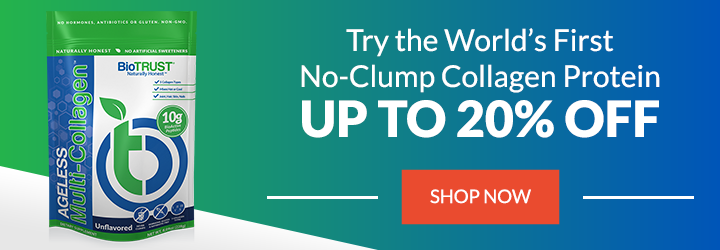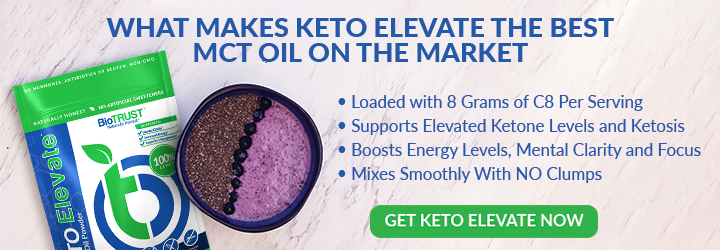6 Best Keto Supplements for Low-Carb Diet Results
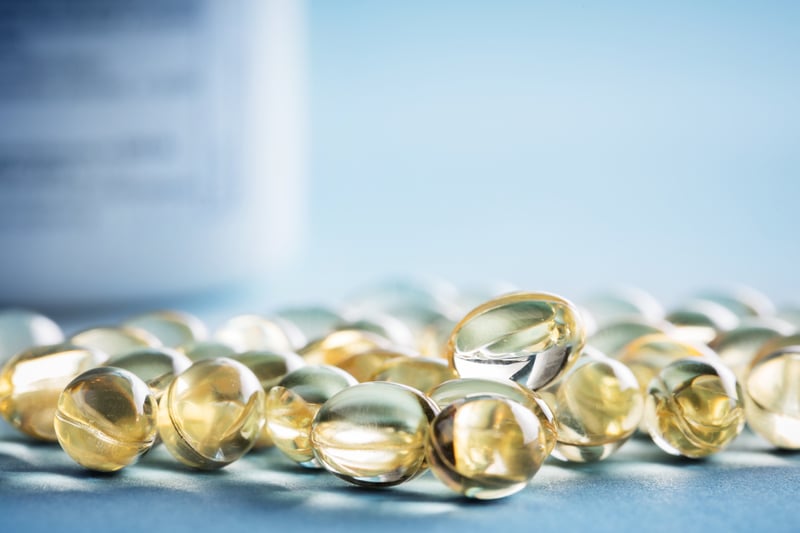
One of the most common questions we hear around here is how to best use various supplements, specifically for low-carb diets. Although science shows that low-carb diets alone can be an effective way to lower blood sugar, control insulin resistance, optimize blood lipid levels (e.g., triglycerides, cholesterol), and aid in the prevention of some very prevalent health conditions, adding keto diet supplements to help enhance and better support results is more popular than ever before.
In fact, up to 80% of Americans use nutritional supplements each year. 1 However, when choosing any type of nutritional supplement, it’s important to know they’re not all created equal. And, many possess considerable shortcomings.
Because of this, we did the research to find the supplements that may truly help you optimize your low-carb diet.
In general, supplements are typically used for these two purposes:
- To help boost your results
- To avoid nutrient deficiencies
To get enough essential nutrients in your diet, it is critical to make sure you are consuming a diverse array of foods like meats, poultry, seafood, low-carb dairy, eggs, and veggies. Once your nutrient needs have been reached, it may be time to help maximize your results with the best keto supplements.
The 6 Best Keto Supplements
1. Omega-3 Fatty Acids
Due to modern industrialization, omega-3s have become largely absent from the food supply. Omega-6 fatty acids, on the other hand, have become overabundant. In other words, the typical modern diet contains too many omega-6s and not enough omega-3s, yet the body requires a healthy balance of these essential fats.
Along those lines, correcting this imbalance, which has been linked to many health issues, through foods and supplements can be beneficial for the entire body.
Omega-3 fatty acids EPA and DHA help improve the properties of cell membranes (e.g., fluidity, suppleness). And research shows that regular use of an omega-3 supplement containing DHA and EPA may provide support for proper fatty acid ratios, which in turn helps support a wide range of health benefits, including:
- Heart health
- Healthy brain function
- Mental outlook and balanced moods
- Eye health and vision
- Skin health
- Healthy immune system function
- Healthy metabolic function
This means that an omega-3 supplement such as OmegaKrill may help you improve your body composition while helping optimize blood lipids. When this is combined with the low-carb diet, we end up with a dietary strategy that could help us lose fat, improve health, and look better than ever.
2. Magnesium
Magnesium is an essential mineral involved in critical processes throughout the body. This includes moderating blood pressure, synthesizing proteins, maintaining nerve and muscle function, and regulating blood glucose.
Magnesium deficiency is relatively common, with about 43% of the U.S. population not meeting the USDA dietary intake of magnesium. Even more, this tends to be more common among people who consume a low-carb diet lacking a wide variety of magnesium-containing plant foods.
If you have low magnesium levels, you may experience fatigue and muscle cramps, among other things. Long-term deficiencies can even lead to neurological damage. Often, though, magnesium deficiency symptoms aren’t immediately apparent.
To ensure adequate magnesium levels and reap the benefits of magnesium, regularly consume magnesium-rich foods, such as avocados, high-fat yogurt, low-carb nuts, and low-carb vegetables. Additionally, it might be helpful to consume a high-quality supplement containing magnesium.
3. Vitamin D
Another supplement that can be useful when following a low-carb diet is vitamin D. Often referred to as the “sunshine vitamin,” vitamin D is a fat-soluble prohormone best known for its role in supporting bone health and aiding in the absorption of calcium and phosphate from the GI tract.
But the benefits of vitamin D (aka vitamin D3, also known as cholecalciferol) far surpass the traditional view of its role in maintaining healthy bones. In fact, the active form of vitamin D3 in the body functions as a hormone. And nearly every tissue in the body has a vitamin D receptor, including cells of the pancreas, immune system, skin, thyroid, stomach, colon, and more.
More than that, vitamin D has an important role in supporting other body systems, including the cardiovascular system, blood sugar balance, musculoskeletal strength, cognitive function, and immune function, which trace to its ability to target over 200 different genes in the body.
Unfortunately, hardly anyone has healthy levels of vitamin D. About 1 billion people worldwide have a vitamin D deficiency, while 50% of the population has vitamin D insufficiency, making vitamin D deficiency one of the most common health concerns worldwide.
Although vitamin D deficiency is common with most diets, it is even more prevalent among people on a low-carb diet due to a more restricted diet, which often omits most foods fortified with vitamin D (e.g., breakfast cereal, dairy, juice, etc.)
And while many vitamin D supplements miss the mark, it’s not all bad news. Sol Joy, BioTRUST’s high-potency vitamin D3 formula with vitamins A and K2, provides high-potency support for healthy bones and muscles, circulatory health, overall well-being, and a healthy, properly functioning immune system.
4. MCT
When following a low-carb lifestyle, calories previously obtained from carbs are often replaced with fat-rich food. However, most of the fats consumed won’t be used as fuel right away, especially during the first few days. This is why supplementing with a special type of fat called MCT oil can help tremendously.
Most fats we eat are long-chain fatty acids, containing 16 – 18 carbon atoms. Medium-chain fatty acids, more commonly called medium-chain triglycerides (MCTs), are fats with 6 – 10 carbons. And caprylic acid (C8) and capric acid (C10) are the two most prominent MCTs.
MCTs are a perfect example that not all fats are created equal. MCTs have a shorter length, so they’re metabolized by the body differently than long-chain fatty acids.
For example, MCTs are easily digested and rapidly absorbed. They are transported directly to the liver, and MCTs are quickly and efficiently burned for energy. Because they are transported directly to the liver, they bypass adipose (fat) tissue, which makes them less likely to be stored as fat. What’s more, while dietary fat typically provides nine calories per gram, MCTs have a lower amount of useable energy, providing only seven calories per gram.
What’s more, MCTs are readily converted to ketone bodies, even when someone is not on a ketogenic diet. In other words, MCTs may elevate ketone levels without the need for drastically cutting carbs.
According to research, consuming the MCT C8 may cause a greater rise in ketone levels than other MCTs, such as C10, or combinations of MCTs as commonly found in foods like coconut oil. Because of its improved ability to increase ketone production, C8 (aka caprylic acid) may help support:
- Energy levels
- Healthy appetite and weight management
- Mental clarity and focus
- Athletic performance
- Insulin sensitivity and blood sugar levels
- Immune system function and regulation
- Gut function
- Absorption of certain nutrients
- Liver cell function
After searching the market, we decided to create our own MCT powder: Keto Elevate. We truly believe it is the best on the market today.
Each scoop of Keto Elevate comes in a convenient powder form, has just one gram of net carbs, and each serving provides five grams of C8. Unlike some other MCT oils and MCT oil powers, Keto Elevate contains only C8 MCT and no other MCTs. It is not watered down with less powerful MCTs (NO C10, NO C12), and that means support for ketone production, which can lead to quick, clean, natural energy you can feel.
5. Collagen
Although collagen is a protein, it is very different from other common protein sources—such as beef, poultry, fish, eggs, dairy, and plants—because it features a unique profile of amino acids. It is especially rich in glycine, proline, and hydroxyproline, which is found ONLY in collagen protein. Together, these three amino acids account for 40 – 50% of the amino acids in collagen protein, which is 10 – 20 times higher than other common protein sources.
The amino acids are the raw materials the body needs to support collagen production and healthy levels of collagen. For example, here’s an overview of what collagen supplementation can help with:
- Increase skin and nail health and integrity
- Enhance muscle growth and recovery
- Improve function and integrity of joints, bones, tendons, and ligaments
- Help heal the gut
- Improve overall sleep quality
- Help with various mental health issues
- Enhance metabolic function
- Support brain health
To provide support for an array of benefits, Ageless Multi-Collagen contains FIVE key collagen types (I, II, III, V, and X) from FOUR different food sources:
- Hydrolyzed collagen peptides from grass-fed, pasture-raised cattle (types I and III)
- Hydrolyzed collagen peptides from sustainable fish (type I)
- A unique and patented eggshell membrane (types I, V, and X)
- Type II collagen from chicken
Altogether, this combination of five types of collagen is particularly important to reap all the benefits collagen supplements offer for an array of full-body benefits.
6.Chromium Picolinate
A healthy diet, regular physical activity, stress management, and good sleep all play a role in promoting healthy blood glucose metabolism and metabolic wellness, which are important for energy levels, mood, appetite management, physical and mental performance, healthy aging, and more.
But even when people put the effort toward optimizing their diet and lifestyle, targeted supplementation can be an effective way to augment these positive changes. In other words, even if you’re doing everything “right,” you might still benefit from certain key nutrients and ingredients that can provide support for carb management and metabolic wellness.
Chromium picolinate is a supplemental form of chromium to improve nutrient metabolism. While chromium itself is a mineral found in low doses in many foods, chromium picolinate is derived from chromium (III) and picolinic acid and is the form commonly found in dietary supplements.
One of the best supplements containing chromium picolinate is BioTRUST’s IC-5, which contains Chromax®, a patented form of chromium picolinate. Chromax® differs from other forms of chromium because of its stable structure and superior absorption. Additionally, it is a clinically substantiated ingredient that may assist with weight loss while helping maintain lean muscle mass (i.e., lose the fat, not the muscle).
Chromax® has also been shown to promote metabolic wellness by supporting healthy glucose metabolism and insulin sensitivity.
Beyond this, IC-5 combines five research-backed ingredients designed to support metabolic wellness and healthy glucose and energy metabolism. For example, when taken with a carbohydrate-containing meal, IC-5 was formulated to help support the body’s ability to use glucose for energy. When used consistently with a healthy diet and exercise, it may assist with weight management and may help maintain blood sugar levels already within a normal range.
Again, when you eat a wide variety of whole foods, supplements may not be necessary. But in our busy world, many of us can get into a food rut—especially when following a diet that restricts types of foods—and we may be unknowingly setting ourselves up for nutrient deficiencies. And even if you are eating the variety of foods you need, you may be able to optimize your diet with key supplements like those above.


